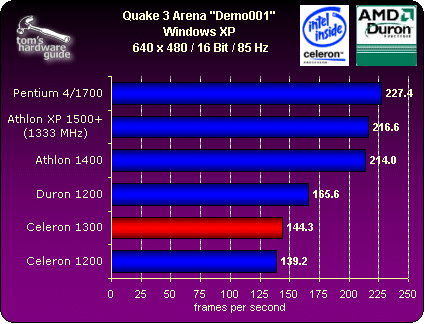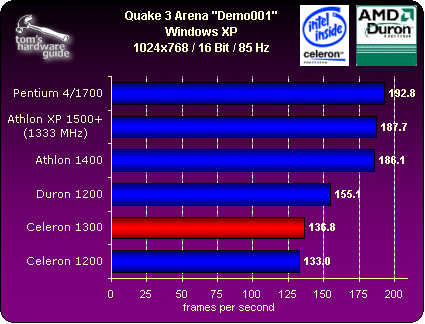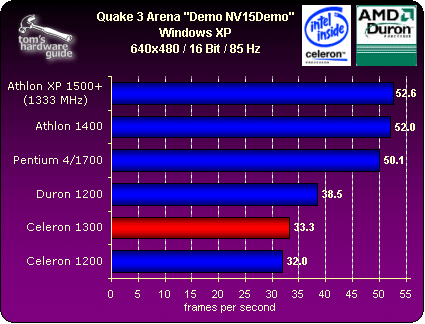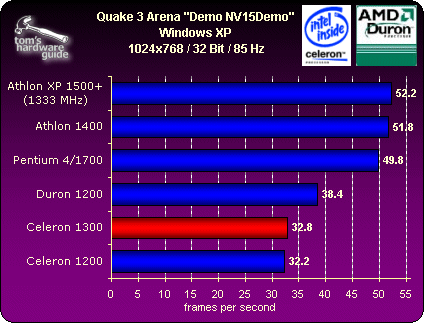Intel vs. AMD: Celeron 1300 vs. Duron 1200
Benchmark Results: Windows XP
We ran a total of 16 different benchmarking tests to obtain as much reliable and comprehensive information as we could about the performance of the Celeron 1300.
OpenGL performance was measured by four different Quake tests. Direct3D performance from the DirectX package was measured by the 3D Mark 2000 (based on DirectX 7) and the 3D Mark 2001 (based on DirectX 8). The different MPEG-encoding benchmarks provide a comprehensive testing environment - the Lame MP3 Encoder was used to encode a 178 MB WAV file into "MPEG-1 Layer 3 Format." We also took a look at how well the CPU encodes an MPEG-2 file within a project by using the video-editing software "Pinnacle Studio 7." For some time now, we've also been using a new benchmark to determine rendering performance - Newtek's professional Lightwave package (version 7b). Additionally, we ran WinACE to test how well the CPU performs when archiving files, a common application. Compiling the latest Linux kernel has long been a standard benchmark in our repertoire, as well. Finally, the Sysmark benchmark was used to determine office performance.
OpenGL Performance: Quake 3 Arena
In both the time-demo run-throughs of Quake Arena 3, the Duron 1200 comes out ahead of the Intel Celeron 1300. The results are similar in the NV15 demos - the Duron 1200 comes out on top, beating the Intel model.
Get Tom's Hardware's best news and in-depth reviews, straight to your inbox.
Current page: Benchmark Results: Windows XP
Prev Page Testing Procedure And Peculiarities Next Page Direct3D Performance - DirectX 7: 3D Mark 2000-
disagree. tualatin celeron eats the duron, especially done right. clearly it comes out ahead in most tests, and that's without even mentioning the fact a tualatin celeron 1000a is the easiest overclock ever at 1330. also, the sis635 chipset could in fact marry this chip to DDR, which wasn't tested here.Reply
even without all that it still comes out ahead in many "every day" tests, and to just look at the wattage difference, the very slight extra duron oomph simply doesn't justify the fan noise. this line of celerons were the best deal in town when they came out. they are the cherries on top of the 686 cake.



